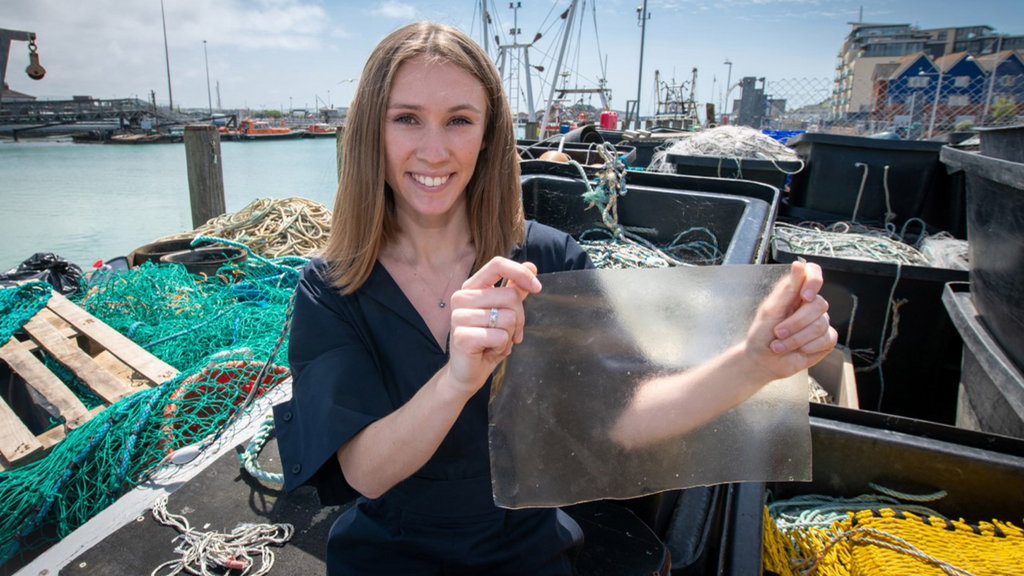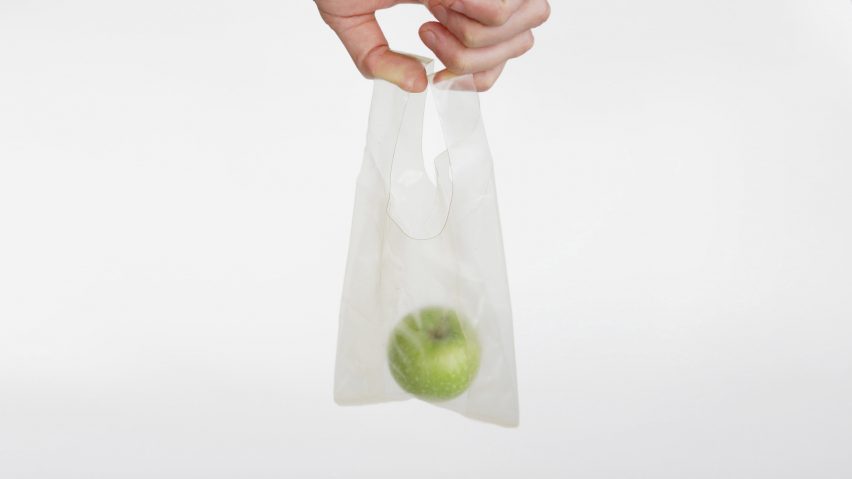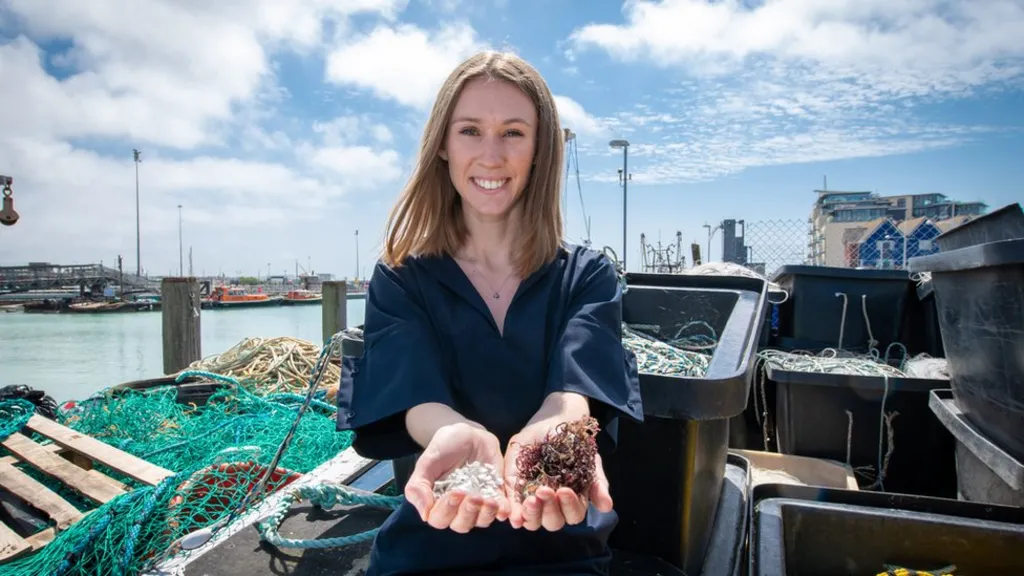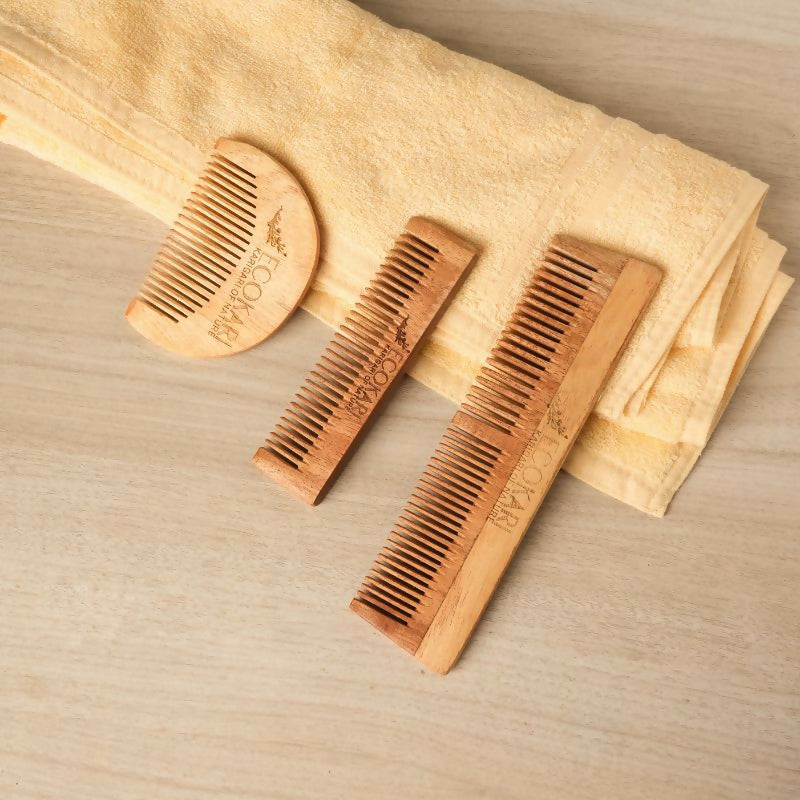Lucy Hughes: MarinaTex

As we approach World Environment Day, with this year’s theme on Ending Plastic Pollution, we’re reminded again that sustainable innovation can’t be optional anymore. Brands must step up and take responsibility and switch to real environment friendly products. We’ve already seen an Indian alternative from Zerocircle made with seaweed. Now, from England comes MarinaTex, a remarkable bioplastic created by Lucy Hughes, a final-year student project turned award-winning innovation in 2019.
MarinaTex is a bioplastic made from organic fish waste, mainly fish skins, scales, and other byproducts usually destined for landfill or incineration, combined with locally sourced red algae that acts as a natural binder. This material is flexible and fully biodegradable within 4 to 6 weeks, leaving no toxic residue behind.
Lucy Hughes breakthrough came after more than 100 experiments to unlock the potential of fish proteins, which give MarinaTex its unique flexibility. According to Lucy, the waste from one Atlantic cod can produce enough MarinaTex to make approximately 1,400 biodegradable bags, bags that can replace single-use plastics while solving the fish waste problem at the same time.

(Image Credit: MarinaTex - James Dyson Awards 2019)
Why MarinaTex Matters
Most products are designed for a single life cycle used once and discarded, polluting land and oceans for centuries. MarinaTex challenges this by being a truly circular solution. Engineered to break down harmlessly, it protects the planet at every step. When thrown away, it doesn’t pollute as plastic, but biodegrades naturally, completing its lifecycle without harm.
In the fight against plastic pollution, circular solutions like MarinaTex are essential for a sustainable future where waste is minimized, and resources are continuously regenerated.
Single-use plastics are the ultimate short-term fix with irreversible long-term damage. Used for minutes, they persist in the environment for hundreds of years. Every year, an estimated 11 million metric tonnes of plastic enter the ocean. Bags, wrappers, microplastics, they choke marine ecosystems, kill sea turtles, seabirds, and fish, and even make their way back into our bodies through seafood. Once in water, plastic breaks into micro-particles, never fully disappearing. The ocean becomes a dumping ground for human convenience. That’s why innovations like MarinaTex matter, unlike conventional plastic.

(Image Credit: MarinaTex - James Dyson Awards 2019)
The Bigger Picture - Innovation and Responsibility
Lucy Hughes project, the 2019 International James Dyson Award winner, shows how young innovators can find solutions to global problems with creativity and responsible actions. The founder of the Dyson Awards said they picked "the idea the world could least do without." It tackles two urgent waste problems: single-use plastic and fish processing byproducts.
She challenges the status quo that materials are often used in the wrong place, and waste is overlooked as a resource. Sustainability, Lucy insists, shouldn’t be a luxury or a compromise. It must be the baseline, a responsibility that brands, industries, and consumers share equally.
We celebrate ideas like MarinaTex because they show us what’s possible. This is the new kind of innovation where we need more of regenerative, circular, and practical outcomes. The fight against plastic pollution requires awareness, and actionable, scalable innovations rooted in circularity. It’s time for brands and industries to stop greenwashing because the planet can’t wait any longer.
If you're a consumer, rethink what you use once and throw. If you're a brand, ask why your material choices haven’t changed yet.






Leave a comment